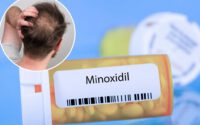Psychedelics could transform cigarette addiction treatment: ‘Metamorphosis’
These people are tripping over the fact they’re no longer smokers.
A recent study has found that a combination of psychedelics and talk therapy can help cigarette smokers finally kick the filthy habit for good.
The study, published in the Kennedy Institute of Ethics Journal, examined the post-treatment journals kept by participants in a 2014 John Hopkins study that looked into the “therapeutic use of hallucinogens in the treatment of substance use disorders.”
In that study, 15 participants were given psilocybin, the active hallucinogenic ingredient in psychedelic mushrooms, after talking with a therapist.
Researchers from the University of Cincinnati subsequently analyzed the journals the participants kept and found that a majority of them reinvented their perceptions of themselves as “smokers.”
“We saw again and again that people had this feeling that they were done with smoking and that they were a nonsmoker now,” lead author and University of Cincinnati postdoctoral researcher Neşe Devenot said in a press release.
“If you want to give up meat but you smell a delicious steak, it might be hard to resist,” she added. “But if you identify as a vegetarian and your sense of who you are is someone who does not eat meat, that identity helps encourage a different choice.”

“Psychedelics have been compared to skiing in fresh snow… you might have more freedom to maneuver your skis anywhere down the mountain,” Devenot further explained, saying psilocybin can help some who are stuck in the same routines of bad behavior.
“The entrenched grooves of bad habits might not have as much pull on our skis, so we can lay down other paths,” she stated, continuing the comparison.
Indeed, many of the participants appeared to radically reinvent the idea of themselves.
“I feel that I am somehow fundamentally different to yesterday,” one participant wrote. “I guess I feel like some sort of metamorphosis has taken place!”
“The concept seems firmly cemented into my reality even today, that cravings are not something that are real,” another declared.

In the end, the study found that 12 of the 15 participants (80%) were able to stop smoking for six months, while 12 of the 15 (60%) remained free from the habit after five years.
According to the University of Cincinnati press release, that percentage of success is higher than “other traditional quit-smoking methods.”
The National Institutes of Health says approximately 75% of smokers experience relapse within six months. However, the likelihood of falling back into the habit dramatically decreases after that point. Up to 60% of those who managed to abstain for six months maintain smoking cessation for at least eight years
Cognitive behavioral therapy works by getting people to focus on their thoughts and feelings as they respond to the world around them, while psychedelics have been found to help people change their responses to certain stressors or other triggers.
“This sets the stage for actually having the psilocybin experience, which can both provide novel insights and perspectives as well as serve as a marker of that identity shift like a rite of passage, signifying the change for instance from smoker to nonsmoker,” Albert Garcia-Romeu, an assistant professor of psychiatry and behavioral sciences at Johns Hopkins University, said.
Psychedelics have become increasingly popular in recent years in both recreational and clinical settings. Last year, Colorado became the first state to legalize psilocybin and other states, including New Jersey, are considering following in those footsteps.
In clinical settings, magic mushroom therapy has been found to be a successful treatment for post-traumatic stress disorder, depression and the stress of death, among other things.


